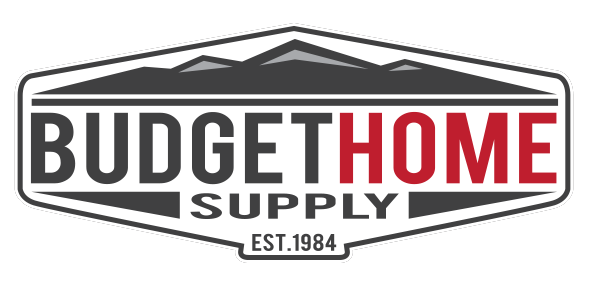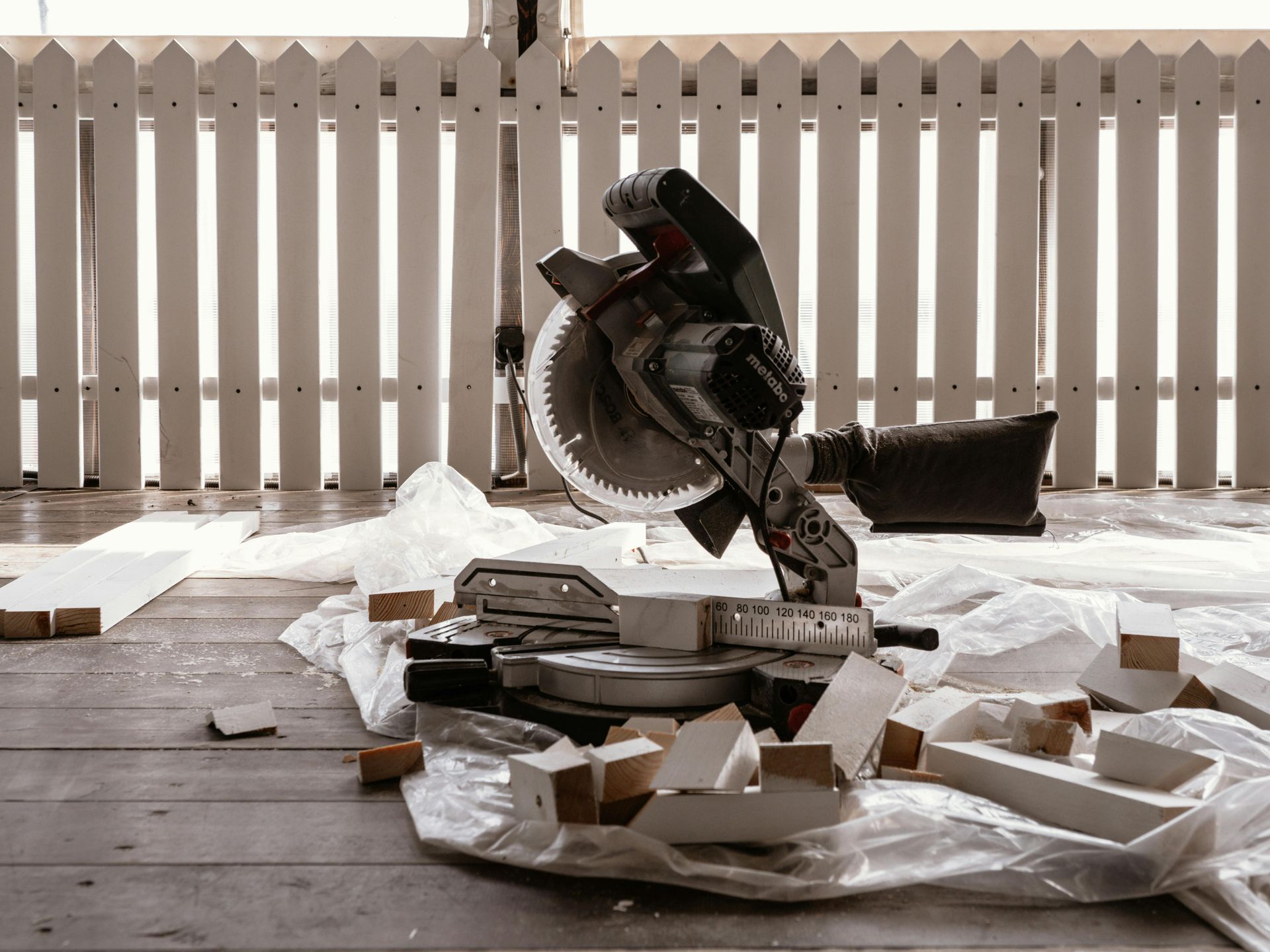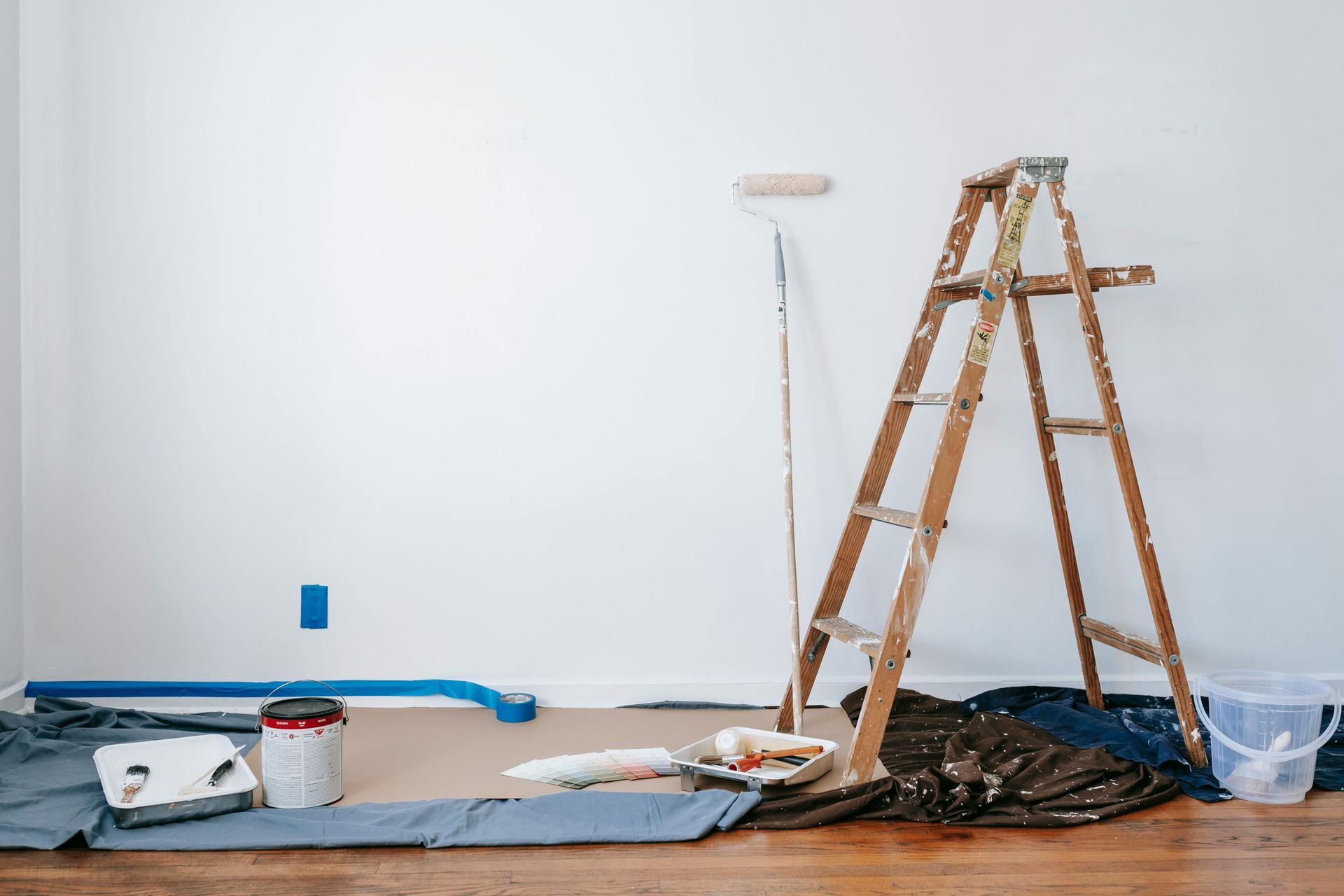Pergola Materials: Which is Right for You?
Pergola Materials: Which is Right for You?
An artfully crafted pergola can transform your backyard into a sun-dappled oasis! These beautiful and functional outdoor features don’t just look good; they help you discover the joys of outdoor living and a way to extend your living space while being shaded from the elements.
Whether you want a small and cozy nook for relaxation or an elegant space with all the bells and whistles for entertaining guests, one of the most important decisions you will need to make when building a pergola is your choice of material.
But with a million and one options available online, how do you decide which material to choose?
Don’t worry!
Budget Home Supply believes in empowering DIYers and homeowners, so we'll break down the pros and cons of each popular option, helping you choose the perfect material for your budget, style, and desired level of maintenance.
What is the Best Material for a Pergola in Longmont, CO?
The material of your pergola affects not just the appearance but also its durability, maintenance needs, and ability to withstand the weather conditions in Longmont, Colorado.
The right material can make your pergola a low-maintenance and long-lasting addition to your home, while the wrong choice might lead to frequent repairs and a shorter lifespan.
1. Wood Pergolas: Classic and Timeless
Wood is perhaps the most traditional choice for pergolas. Just imagine a rustic backyard haven with a warm, natural aesthetic.
Wood's natural beauty and versatility make it a favorite among homeowners looking to create a warm and inviting outdoor space. It exudes timeless elegance and blends seamlessly with its natural surroundings.
Popular wood options include:
- Cedar: Cedar is a popular choice due to its natural resistance to rot and insects. It has a beautiful, rich golden-red hue that weathers to a silvery hue and a pleasant aroma that adds to its appeal. Cedar is lightweight yet strong, making it an ideal choice for pergolas. However, to maintain its appearance, you need to regularly seal and stain cedar wood.
- Redwood: Redwood is similar to cedar in its resistance to decay and insects but has a deeper, redder hue. It's more expensive but has a luxurious look and feel. Like cedar, it needs regular maintenance to keep its color and prevent weathering.
- Pressure-Treated Pine: For those on a budget, pressure-treated pine is an affordable option. It’s treated with chemicals to resist rot and insects, making it durable.The wood may require more frequent maintenance to prevent warping and splitting. However, the best part is that it can be stained in a wide range of hues from golden honey to dark chestnut!
Pros of Wood Pergolas:
- Natural beauty and warmth that blends with the landscaping
- Can be stained or painted to match your aesthetic
- Can be customized in terms of size and design
Cons of Wood Pergolas:
- Requires regular maintenance (sealing, staining, or painting)
- Susceptible to weathering, especially in harsh climates
- Can be expensive depending on the type of wood chosen
2. Vinyl Pergolas: Low Maintenance and Modern
If you're looking for a pergola material that you can just “set and forget,” vinyl might be the answer. Vinyl pergolas offer a sleek, modern look and come in various neutral hues.
They are a great option for a clean, white aesthetic that complements most home exteriors.
Pros of Vinyl Pergolas:
- Virtually maintenance-free (no painting, staining, or sealing required)
- Resistant to rot, insects, and moisture
- Easy to clean with just soap and water
- Long-lasting, with a lifespan of up to 20 years
Cons of Vinyl Pergolas:
- Limited in color choices (typically available in white, tan or beige hues)
- Less customizable in terms of design compared to wood
- Can be more expensive upfront than wood
- May not have the natural appeal of wood
3. Aluminum Pergolas: Durable and Lightweight
Aluminum is an excellent choice for those seeking durability and ease of installation. This material is lightweight, rust-resistant, and can withstand the test of time, even in the diverse Colorado weather.
The best thing about aluminum pergolas is that they are available in various finishes, including wood-like textures, offering the best of both worlds.
Pros of Aluminum Pergolas:
- Extremely durable and resistant to rust, corrosion, and fading
- Lightweight, making installation easier
- Low maintenance (won’t warp, crack, or split)
- Available in various colors and finishes
Cons of Aluminum Pergolas:
- Can be more expensive than wood or vinyl
- May not have the same warmth or natural look as wood
- Less customizable if you want complex designs
- Can get hot under direct sunlight
4. Fiberglass Pergolas: Strong and Long-Lasting
Fiberglass pergolas are gaining popularity due to their strength, durability, and low maintenance. It’s a non-corrosive material that won’t rust or deteriorate over time. It’s also lightweight, making it easier to install, and can be painted in any color, which means the sky's the limit when it comes to designs!
Pros of Fiberglass Pergolas:
- Extremely durable and long-lasting (can last over 25 years)
- Resistant to rust, rot, and insect damage
- Lightweight and easy to install
- Can be painted any color and won’t fade easily
Cons of Fiberglass Pergolas:
- Higher upfront cost compared to other materials
- Limited availability and may require custom ordering
- Can be harder to find compared to wood or vinyl
5. Steel Pergolas: Industrial and Strong
Stainless steel pergolas are the epitome of strength and durability. They can withstand the harshest weather conditions, making them a great choice for areas prone to extreme weather.
Steel pergolas often have a sleek, modern look and can be powder-coated in various colors for added protection and aesthetic appeal.
Pros of Steel Pergolas:
- Incredibly strong and durable (resistant to warping, cracking, and splitting)
- Ideal for larger structures due to its strength
- Low maintenance (rust-resistant when powder-coated)
- Available in a variety of finishes and colors
Cons of Steel Pergolas:
- Heavy and more difficult to install
- Can require a bit more investment than other materials
- May not have the same natural look as wood
Choosing Pergola Roofing Materials
Now that you understand the main pergola materials, let's discuss pergola roofing materials. Adding a roof to your pergola can boost its functionality, providing more shade and protection from the elements. Some of the popular pergola roofing material options are listed below:
- Fabric: A fabric canopy is an easy and cost-effective way to add shade to your pergola. The beauty of using fabrics is that they are available in limitless colors and patterns and can be retractable for flexibility. However, fabric may need to be replaced more frequently due to wear and tear.
- Polycarbonate Panels: These panels are a popular choice for their durability and UV protection. They allow light to filter through while blocking harmful UV rays, making them ideal for sunny climates.
- Metal Panels: Metal roofing, such as aluminum or steel, offers a sleek, modern look and provides excellent protection from the elements. It’s durable and long-lasting. However, due to the weight of metal panels, you may require additional support for your pergola.
- Wood Slats: If you prefer a more traditional look, wood slats can be used to create partial shade. They offer a natural, rustic appearance but may require regular maintenance to prevent weathering.
- Louvered roof: Adjustable slats on a louvered roof allow you to control the amount of sunlight and shade.
So, Which Pergola Material is Right for You?
When it comes to choosing the best pergola material for Longmont, Colorado, you need to consider the local climate and your personal preferences. The area experiences many weather conditions, from hot summers to cold winters, so you'll want a material that can withstand these extremes.
- For Durability: Aluminum, steel, and fiberglass are excellent modern choices due to their ability to withstand harsh weather without rusting or deteriorating.
- For Low Maintenance: Vinyl and fiberglass require little to no maintenance, making them ideal for those who want a pergola that looks great with minimal upkeep.
- For Natural Beauty: Wood offers a timeless, natural look but will require regular maintenance to keep it in good condition. If you love the look of wood and don't mind a little maintenance, cedar or redwood could be perfect.
Choosing the best pergola material comes down to balancing aesthetics, maintenance, durability, and budget. Each material has its unique benefits, so consider what is most important to you.
At Budget Home Supply in Longmont, Colorado, we offer a wide range of pergola materials to suit every style and need. Whether you’re building a new pergola or looking to upgrade your current one, we’re here to help you choose the best material for your outdoor space. Visit us today, and let's create a pergola of your dreams!


